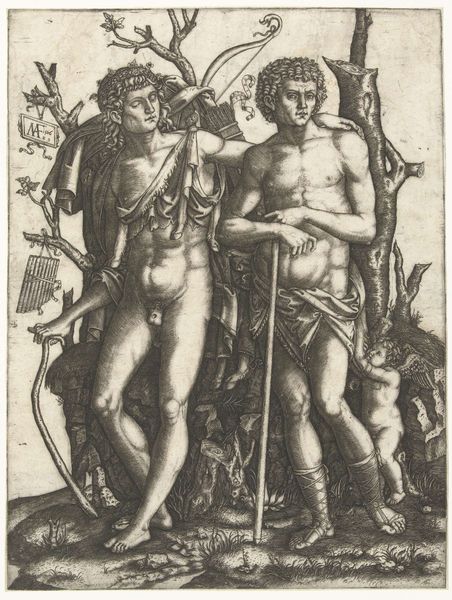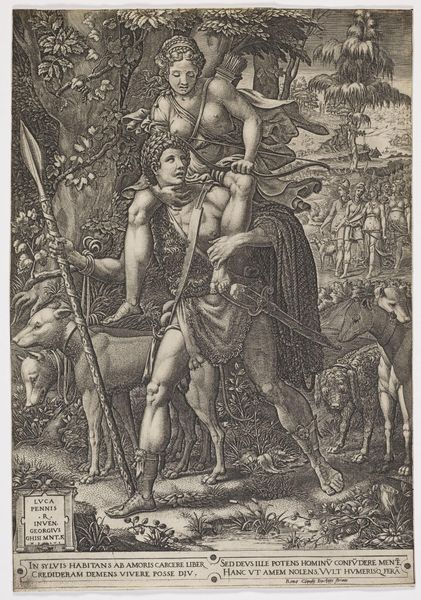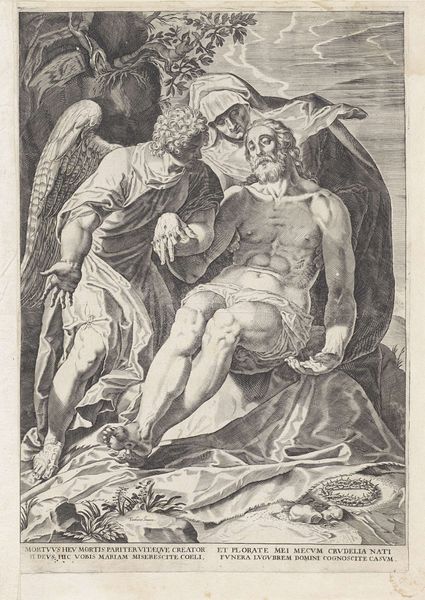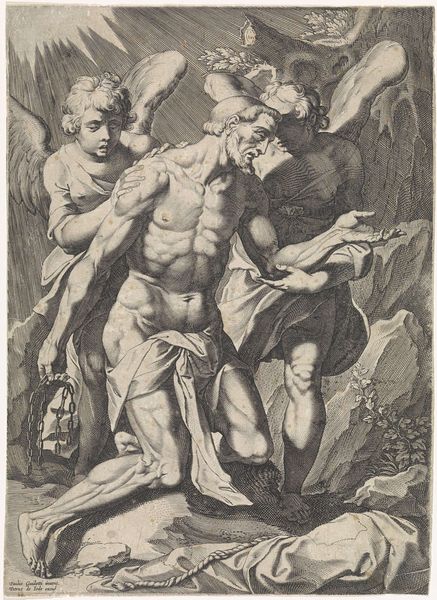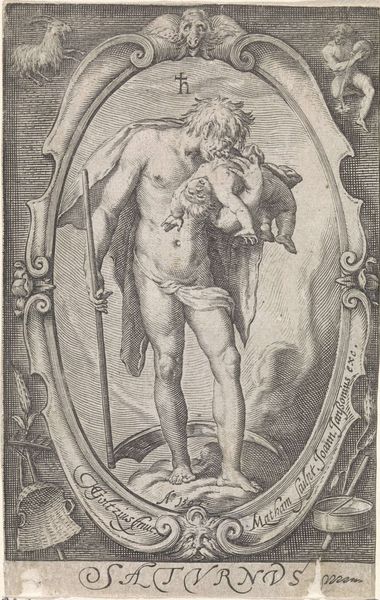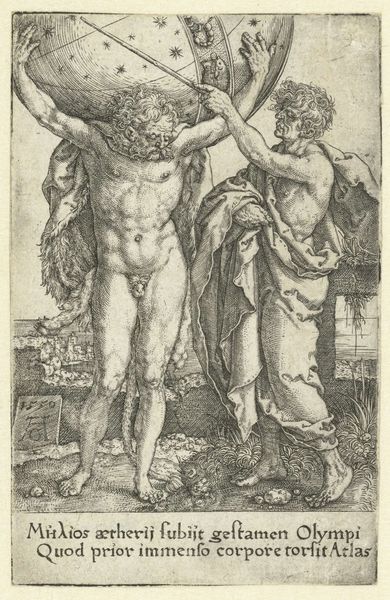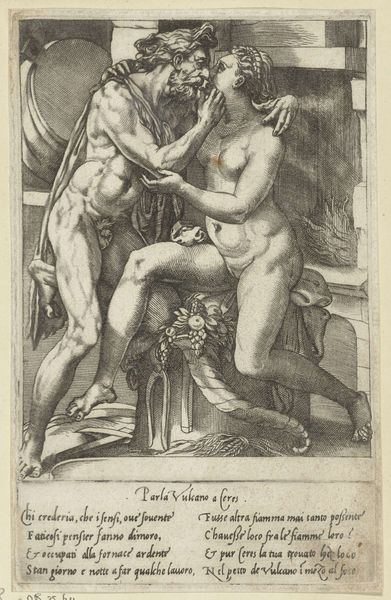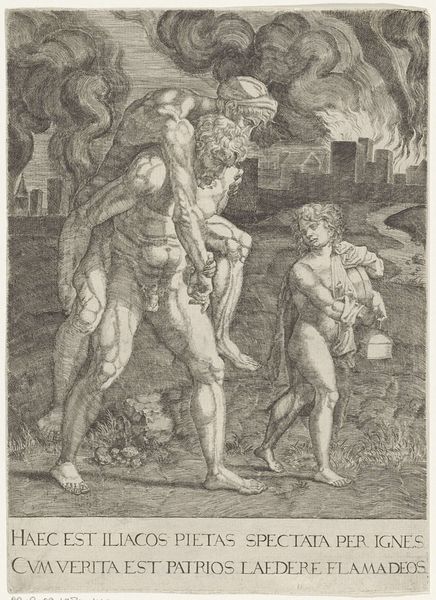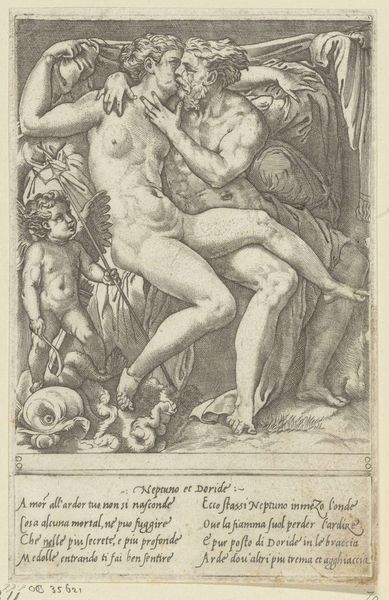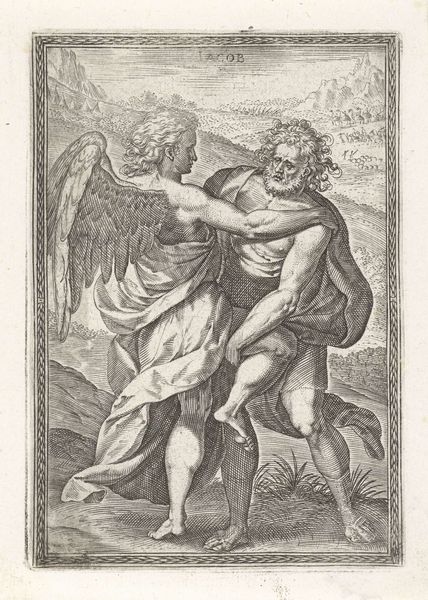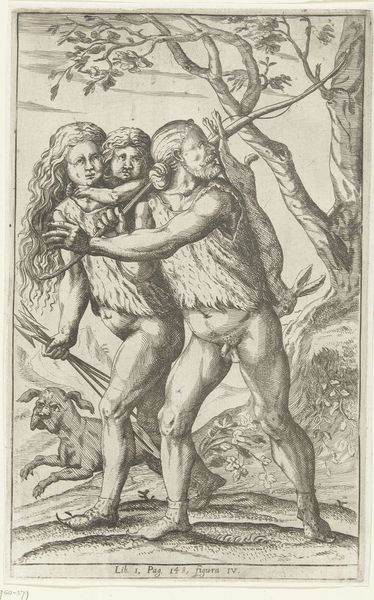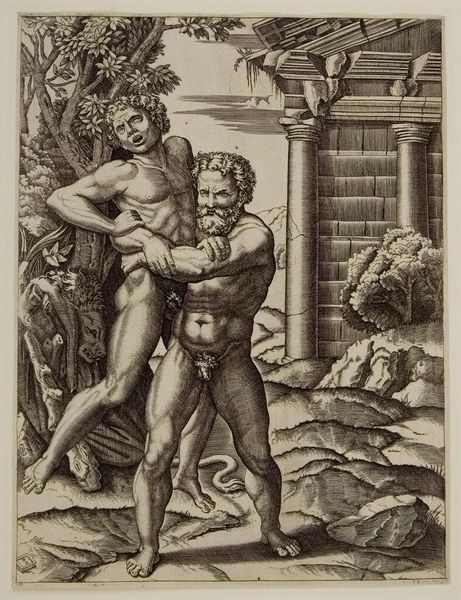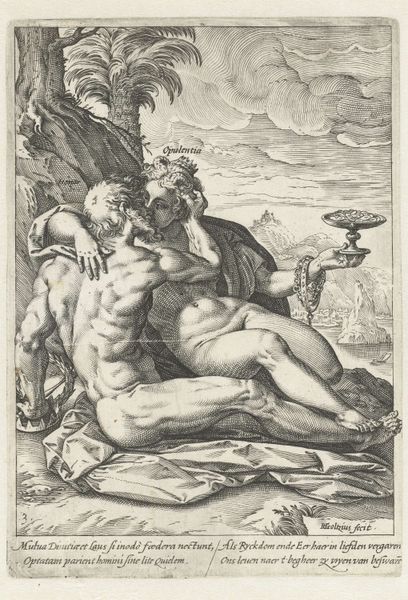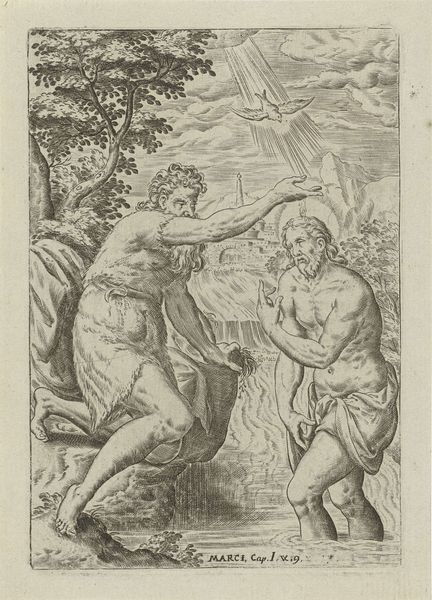
print, engraving
#
baroque
# print
#
figuration
#
history-painting
#
nude
#
engraving
Dimensions: height 180 mm, width 120 mm
Copyright: Rijks Museum: Open Domain
Editor: This is Jacob Matham's engraving, "Hercules en Omphale," created sometime between 1581 and 1631. The rendering of light through cross-hatching is quite remarkable. What compositional elements stand out to you? Curator: Note how the stark contrast serves not only to delineate form, but also to articulate a certain tension inherent within the visual field. Consider, too, the relationship between figure and ground: the figures assert their presence due to the dominance of line and the subtle gradations of light, a formal tactic. Editor: The almost nonchalant posing seems to counter that tension, though, doesn't it? Curator: Indeed, but what does that deliberate contrapposto do to activate the picture plane? Observe how the serpentine line animates the composition. Furthermore, this contributes to a system of spatial relations within the confines of the picture. Are we really looking at a relaxed embrace? Or something deeper and more disquieting? Editor: It's a striking method for portraying that dichotomy, really using light and shadow as contrast rather than shading for shape. I'll have to remember that. Curator: And Matham does this consistently, not simply as shading. The effect creates a surface that seems to vibrate with energy, forcing a deeper consideration of the relationship between light, form, and affect. Editor: The closer I look, the more nuances I find in the formal composition, moving beyond my first reading. Thank you. Curator: My pleasure. Considering form in this way is invaluable, providing keys to unlocking an artwork's potential meanings.
Comments
No comments
Be the first to comment and join the conversation on the ultimate creative platform.
